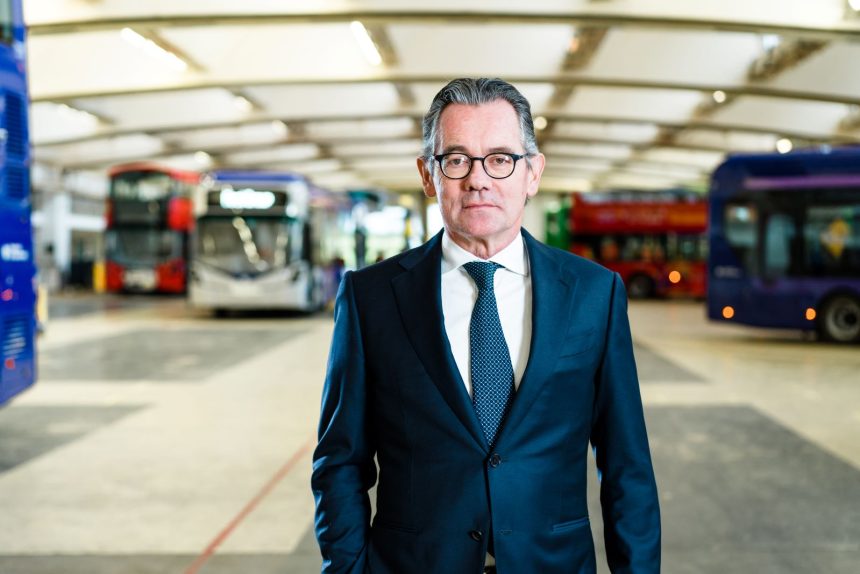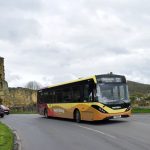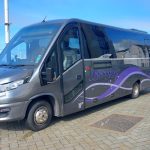Wrightbus owner Jo Bamford said in 2020 that, with sufficient government investment, it could build 3,000 hydrogen fuel cell-electric (HFC) buses for the UK market by 2024.
Despite winning a good portion of the overall European HFC bus market since then, the actual number has fallen well short of that. However, Wrightbus Chief Executive Jean-Marc Gales insists it is still committed to hydrogen, with the overriding focus being on clean power for coach and bus.
“We have a commitment to net-zero and providing a cleaner future; that is what is most important,” says Jean-Marc when asked about those previous goals for hydrogen.
Indeed, Wrightbus led UK manufacturers in terms of electric and HFC buses registered in 2022-23, and Jean-Marc says that orders have been taken for more than 1,000 this year. The Ballymena-based business has made no secret of its plans to expand. Last summer it announced plans to create 1,000 jobs over the next three years and boost overseas sales.
“We are sold out until April 2025 but, if a customer comes in and wants 50-100 units, we will find a way,” says Jean-Marc in assessing Wrightbus’s current success. He says around 80% of orders filled this year will be for battery-electric, 10% HFC, and 10% diesel.
He believes that the proportion of hydrogen buses will grow to 15-20% in 2025, with much of the increase coming from sales to Europe outside the UK. It also plans to expand in the Far East. He says: “Hong Kong and Singapore together are two thirds [the size] of the London market, so they are a fairly substantial market. We have been strong in these countries in the past by building buses in Malaysia on Volvo chassis, but in this case our solution will be 100% Wrightbus build.”
Bringing down the cost
When he was appointed in April last year, the former CEO at Lotus, Peugeot and Citroen committed to bringing down the cost of zero-emission buses. As to when the cost will align closely to that of a diesel, he says: “The gap between electric and hydrogen and diesel is closing. When will it be completely closed, I can’t tell you, but it is closing.
“We closed that substantially last year, we will close it further this year, and we will close it further next year by working on cost reductions together with our suppliers. Could it be 2030? Maybe. Could it be earlier? I can’t give you a definite date.”
The future is zero emission. And it’s also our passion – Jean-Marc Gales
When it comes to completing the switch to cleaner fuels, the government’s end dates for sale of new non-zero-emission coaches and buses remains elusive, after the equivalent for cars was in 2023 delayed by five years. On the effect of this, he says: “At some point there will be one. The industry always needs certainty. We as the number one manufacturer of zero-emission buses in the UK would like to get that date fixed and not pulled backwards afterwards.”
A role for hydrogen combustion?
Jean-Marc says hydrogen combustion engines (HCE) may have a part to play for some applications. Currently, the UK government does not consider HCE to be zero-emission for purposes of grant and incentive funding streams in England because, while hydrogen combustion is much cleaner than diesel equivalents, it emits nitrogen oxides (NOx). He believes within two to three years it will be possible to reduce those emissions to zero.
“I am personally convinced that fuel cell prices will go down in the future, but I’m also convinced that people will work on HCEs because it relieves you of some other pressures. With HCEs, you most certainly don’t need additional battery, so it’s easy on cost.”
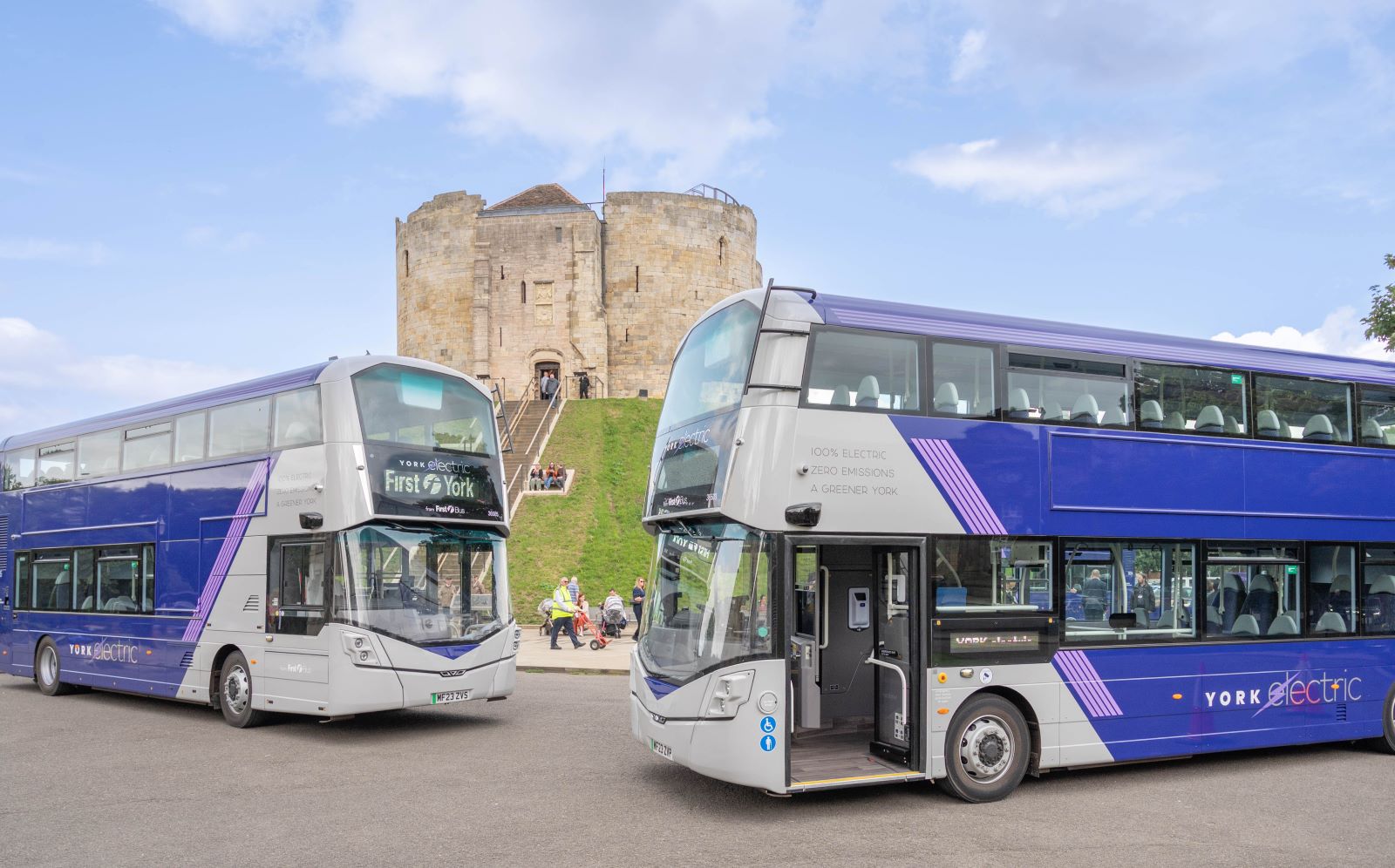
Jean-Marc will not be drawn on whether the government should rate HCEs as zero-emission, but he adds: “I certainly would love to see the government supporting the development of hydrogen coaches, because the UK has a unique possibility – if I look at other manufacturers – to be the number one with hydrogen coaches.”
Work on hydrogen coach driveline
In September 2023, it was announced that Wrightbus had been awarded up to £534,000 of funding to develop a HFC coach driveline. Whether or not the business will produce its own complete hydrogen coach as opposed to just building the driveline remains open, Jean-Marc says.
“We will probably go for two different concepts for a hydrogen coach and, depending on how we move ahead, we are going to decide on whether we build them ourselves or whether we provide the driveline,” he says.
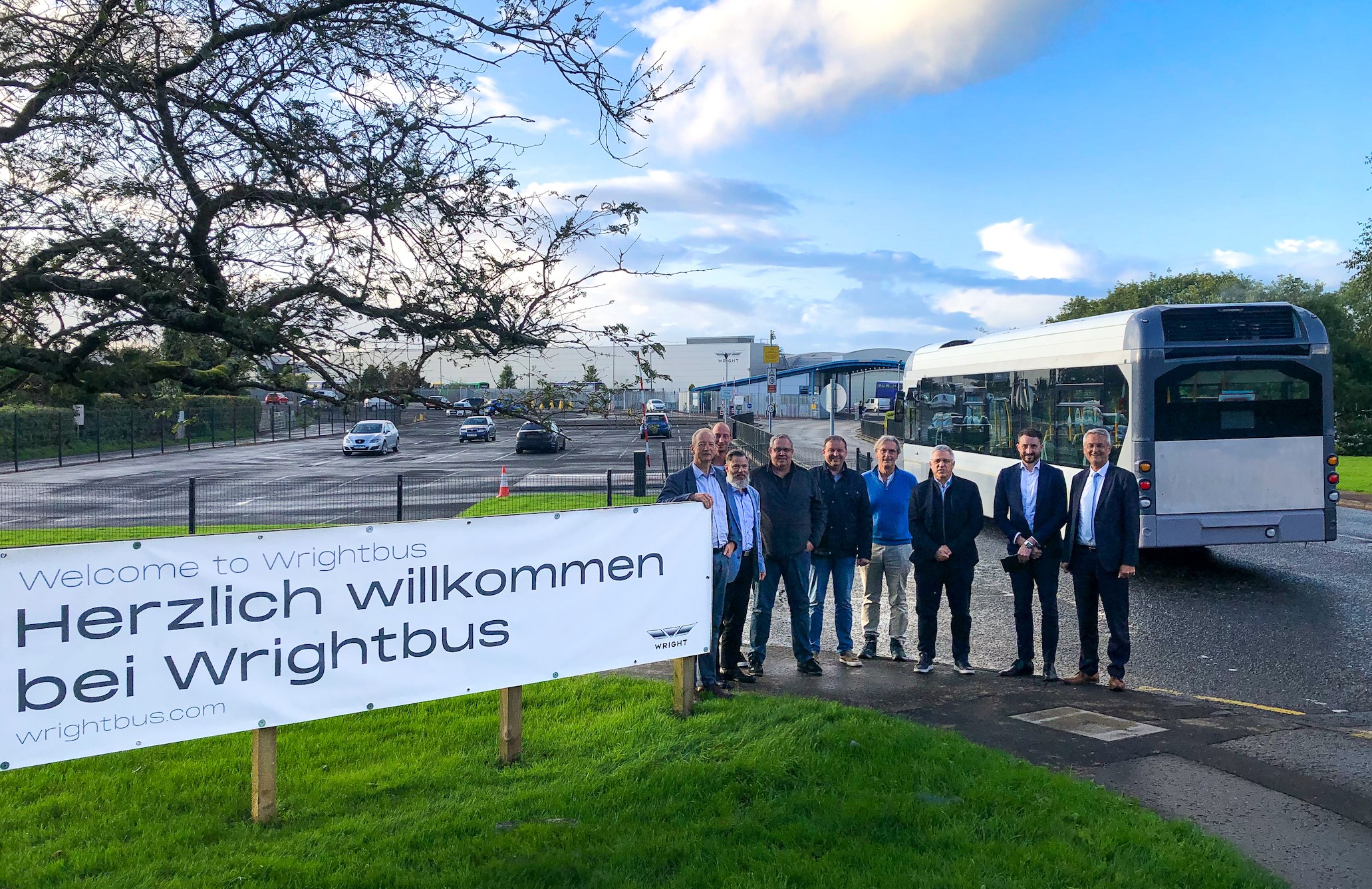
“We love to build things ourselves — we have started building our own [bus] chassis very successfully. This year we plan 1,000 buses out of Ballymena, and there are chassis that we will deliver, but only a couple to other parts of the world — all the other [buses] are built completely by ourselves.”
Jean-Marc is tight-lipped on whether Wrightbus will return to the midibus sector, given it has no zero-emission equivalent of its diesel StreetLite. “It’s certainly an interesting market,” he admits before alluding to the high volume of Optare Solos that must soon be up for renewal.
“Definitely, our focus remains still on those larger buses because that’s where the biggest market is… But there are some interesting solutions that you could envisage for the midi market without needing to develop them yourself and produce them all yourself.”
Whatever the precise journey taken, Wrightbus’s mission is clear, says Jean Marc: “One thing we all agree is that the future is zero-emission. It is also our passion. We are all geared up to make sure that that transition to zero-emission is accelerated.”













